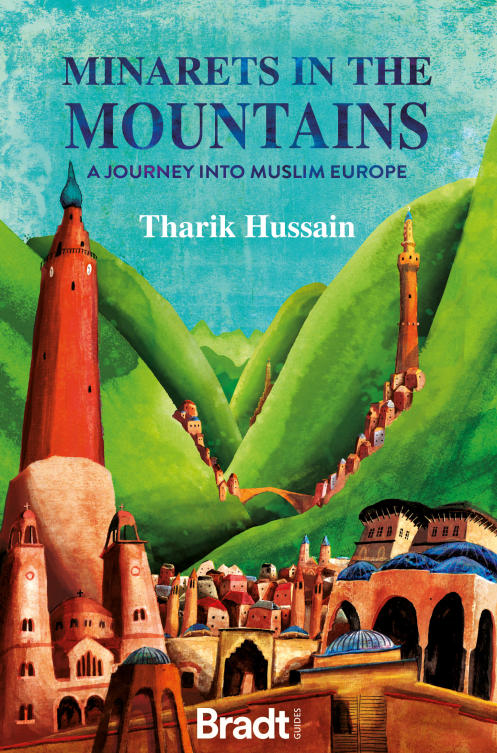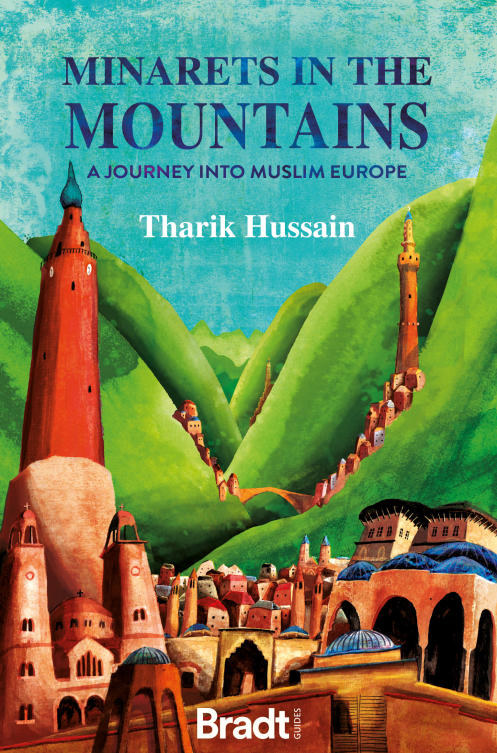LONDON: “Minarets in the Mountains” traces the roots of Europe’s little-known native Muslim populations, and in telling their story cuts to the heart of what it means to be a European and a Muslim in the 21st century.
Acclaimed travel writer Tharik Hussain made a name for himself covering Saudi Arabia’s hidden touristic treasures and tracing Britain’s ancient Islamic heritage, but his latest book tells a very different story.
He told Arab News that his new book is the very human tale of his family holiday across the Balkans — a fun and light-hearted trip taken with his wife and children, but one that prompts readers to contemplate and confront longstanding myths about European and Muslim identity, and the relationship between the two.
“I wanted to bring to the attention of the mainstream the idea that Europe has an indigenous Muslim heritage,” Hussain said.
He and his family toured Serbia, Albania, North Macedonia, Montenegro, Bosnia and Kosovo, meeting locals and exploring the roots of Muslim populations that date back centuries.
But unlike his previous European trips, such as to the south of Spain to write about the long-lost Islamic civilization of what was then called Al-Andalus, this trip was very different — it explored a Muslim culture “that’s alive and thriving today,” Hussain said.

“The common, accepted wisdom is that Europe is Judeo-Christian with pagan elements. That’s a fallacy. Islam has been here in Europe since the very first century of Islam.”
He said indigenous Muslims in the Balkans have been “kept at arm’s length” by being labeled East European and thus excluded from the accepted European mainstream.
“Eastern Europe,” to Hussain, is nearly synonymous with “Other Europe.” This, he said, has contributed to the misconception that the continent does not have native and indigenous Muslim populations. Ultimately, his book dispels that myth.
“As a British Muslim, I’ve had to listen to political opportunists in veiled and sometimes explicit ways saying that Muslims aren’t a part of the European landscape and that there’s an ongoing invasion of Muslim refugees. That’s just utter nonsense. There have been Muslims in Europe since the seventh century,” he said.
“Minarets in the Mountains” will be released on June 21, but in pre-sales alone it has already become a bestselling travel book on Amazon.
Hussain attributes this success to a combination of public hunger for travel writers outside the mainstream, white, middle-class and male-dominated field, as well as an appetite for work that provides an insight into untold stories and novel takes on the continent’s history.
“I’m not denying that there’s a Judeo-Christian heritage, nor that there’s a pagan heritage. I’m saying this is also a history that needs to be brought forward and understood,” he said. “The book’s success shows that people are responding to that.”

























